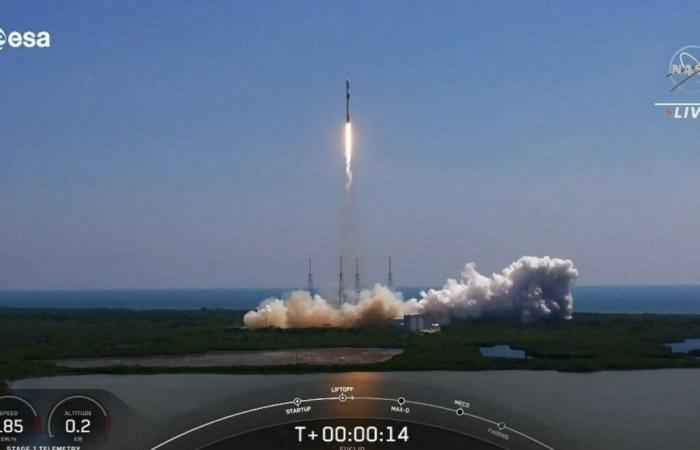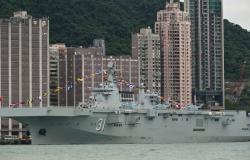A Space X Falcon 9 rocket takes off from the Kennedy Space Center in the United States. (illustration) (NASA/ESA / HANDOUT)
The young Franco-German aerospace company The Exploration Company (TEC) announced on Monday that it had raised 150 million euros to develop and build its reusable cargo ship, Nyx, supported by the European Space Agency.
“This financing brings the total funds raised by TEC to more than 216 million euros,” she underlined in a press release: “they will be used to develop and test the Nyx vessel, to strengthen the team which counts already 200 people and to increase the company’s production capacity.
This new funding round includes the French public funds French Tech Souveraineté, managed by the public investment bank Bpifrance, and the German DeepTech & Climate Fonds (DTCF), as well as “historic investors, notably EQT Ventures, Red River West, Cherry Ventures, Promus Ventures and Omnes Real Tech Fund”, according to the same source.
The Exploration Company, alongside the Franco-Italian industrialist Thales Alenia Space, was selected in May by the European Space Agency (ESA) to develop a cargo transport service to the International Space Station by 2028, first step towards Europe being one day capable of sending humans into space itself.
The two companies were thus granted 25 million euros.
For The Exploration Company, a start-up created in 2021, this was the second major contract after that won with the American Axiom Space to deliver cargo to its future private space station.
Nyx, one of two vehicles developed by TEC, “is a reusable, refuelable spacecraft in orbit that can be launched using any heavy launch vehicle and travel to any space station”, and will be, according to the company, “capable of bringing back to Earth “up to 3,000 kg of freight”, i.e. “the largest descending mass available in the world”.
TEC promises a cost “25 to 50% lower than that of other vehicles”. “The 2nd prototype flight is planned for 2025 and the first flight of Nyx Earth (recurring product) is planned for 2028, to transport cargo for ESA to the International Space Station,” according to the press release.
Faced with increasingly fierce international competition, the ESA wishes to buy space services from manufacturers following the NASA model, rather than developing programs itself.






